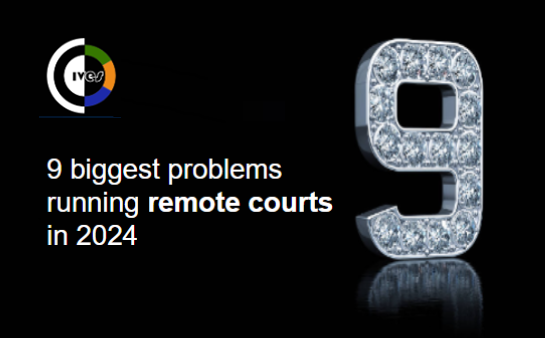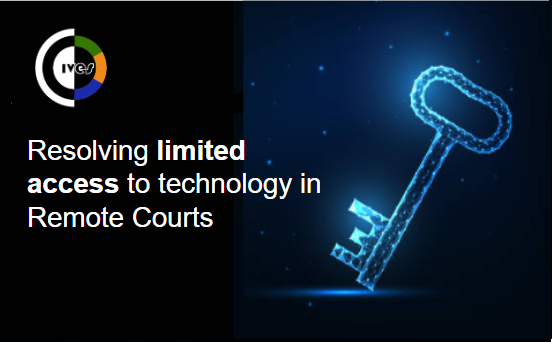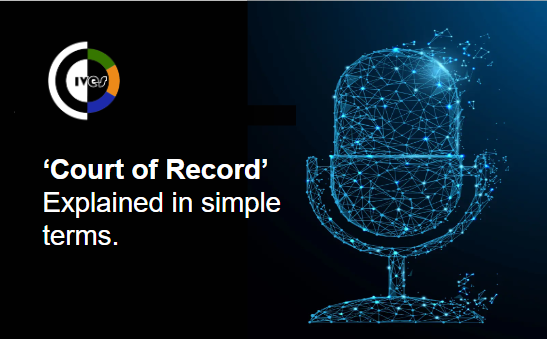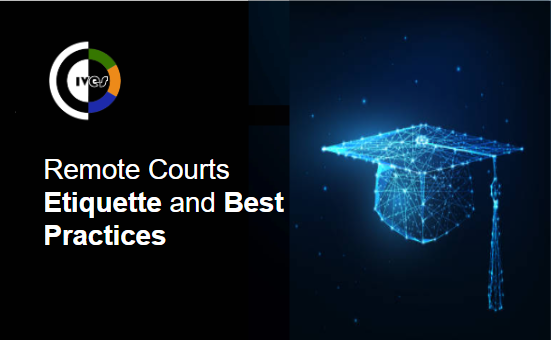Resolving limited access to technology in remote courts
Resolving limited access to technology in remote courts is crucial to ensure equal access to justice for all participants. Here are some strategies...
1 min read
Brian McGlynn : Apr 17, 2024 3:58:00 PM

Running remote court hearings, also known as virtual or online court hearings, has become alot more common in recent years, especially since the COVID-19 pandemic. While remote court hearings offer major advantages, they also come with their own set of challenges. Here are ten of the biggest problems associated with running remote court hearings:
1. Limited Access to Technology
Not all participants, including witnesses, lawyers, and defendants, have access to the necessary technology and internet connections for remote hearings. This can lead to unequal access to justice.
2. Technical Issues
Technical glitches such as poor audio or video quality, connectivity problems, and software crashes can disrupt court proceedings and compromise the fairness of the trial. Invest in a premium videoconferencing solution that is purpose built for remote courts like Courts for Webex.
3. Lack of Privacy
Participants may not have a suitable private space for remote hearings, potentially compromising attorney-client privilege and witness testimony.
4. Security Concerns
Remote hearings can be susceptible to cybersecurity threats, including hacking and unauthorized access to sensitive case information. Videoconferencing engines such as Webex provide excellent security.
5. Difficulty in Assessing Credibility
Judges may find it more challenging to assess witness credibility and demeanor in a virtual setting, potentially affecting the outcome of cases.
6. Limited Non-Verbal Communication
Non-verbal cues, such as body language and facial expressions, are harder to interpret in virtual hearings, making it difficult to gauge the emotional state of participants.
7. Evidence Presentation Challenges
Exhibits, documents, and physical evidence may be more challenging to present effectively in a virtual environment, leading to delays and confusion.
8. Procedural Issues
Remote hearings may not always adhere to standard court procedures, raising concerns about the fairness and consistency of legal proceedings.
9. Access to Legal Representation
Defendants may have difficulty consulting with their attorneys during remote hearings, potentially affecting their ability to present a robust defense.
Efforts to address these problems include improving technology infrastructure, providing training for legal professionals, implementing secure virtual platforms, and developing clear guidelines for remote court proceedings. While remote and hybrid hearings offer excellent benefits, it is essential to strike a balance between the advantages and the challenges they present to ensure a fair and accessible legal system.

Resolving limited access to technology in remote courts is crucial to ensure equal access to justice for all participants. Here are some strategies...

A "court of record" is a legal term that refers to a court whose proceedings and judgments are officially recorded and preserved as part of the...

In our rapidly evolving world, the legal system is no exception to the digital transformation that has reshaped our professional lives. The advent of...